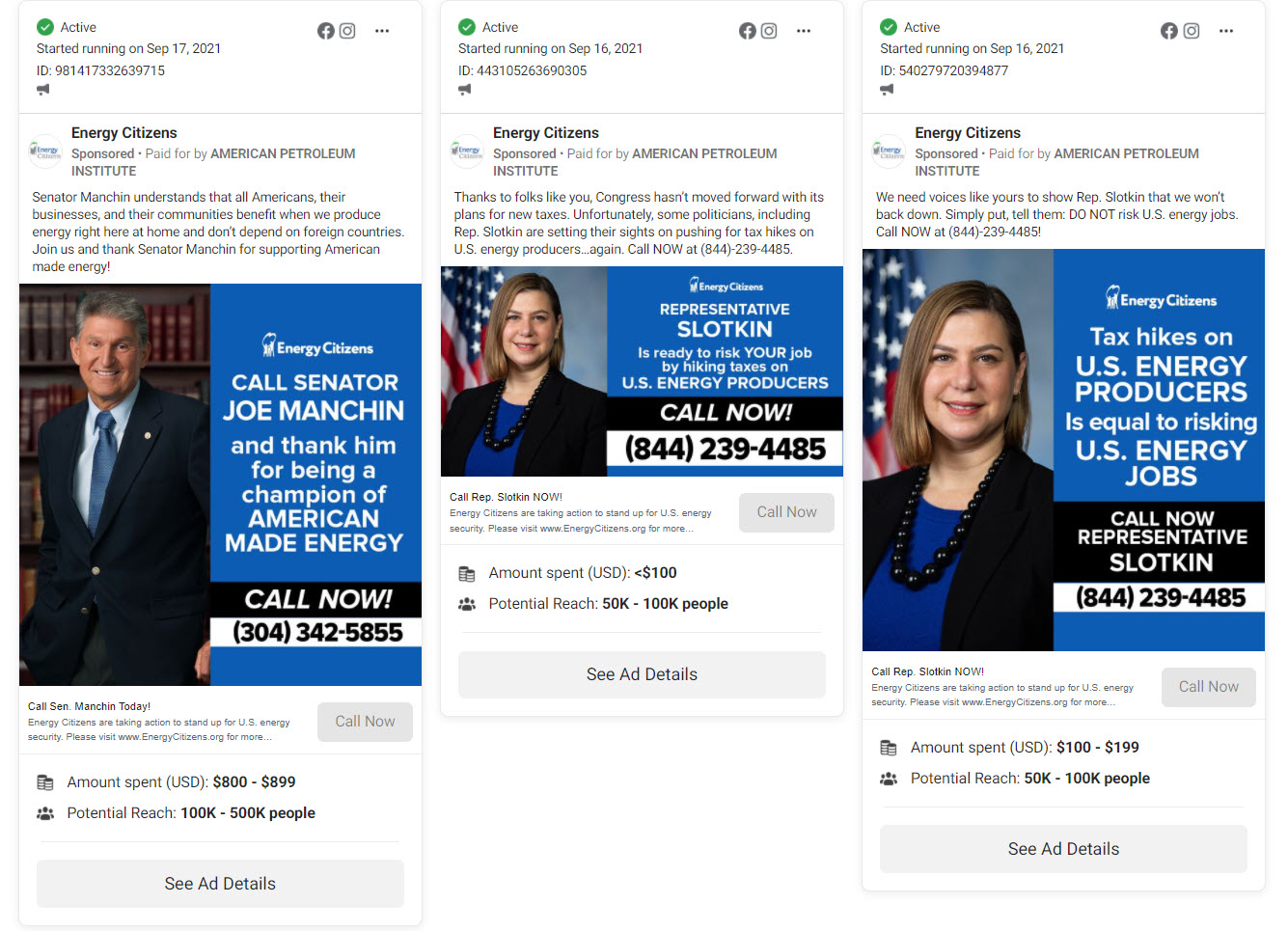
Oil and gas lobbying groups are reaching new highs in their Facebook ad spending as they organize people across the country to lobby their senators and representatives against climate and tax provisions in the Democrats’ reconciliation bill.
Since August 11, when the Senate passed a resolution authorizing itself to fast-track a reconciliation bill, the American Petroleum Institute and the American Gas Association have spent a combined nearly $450,000 on Facebook ads, racking up more than 23 million views, according to the London-based think tank Influence Map. The ads ask people to call their members of Congress and urge them to vote against what they describe as a tax on energy producers. It’s the most amount of money American Petroleum Institute has spent on Facebook ads since Influence Map’s tracking began in 2019 for its analysis.
The reconciliation bill includes a $150 billion program called the Clean Electricity Performance Program that would provide annual grants to electricity suppliers that improve the portion of their energy output that is considered “certified clean energy” by at least 4 percent and require those that do not achieve that benchmark to instead make payments to the federal government. Once a company achieves 85 percent clean electricity it will no longer need to make payments if it does not achieve that annual 4 percent increase in its portion of electricity that is considered clean. Clean electricity is defined in the bill as having a carbon intensity that is not more than 0.10 metric tons of carbon dioxide equivalent per megawatt hour.

The American Gas Association’s ads oppose another section of the bill that would impose a fee on methane emissions. It would apply to companies that operate offshore oil and gas platforms, natural gas pipelines, onshore petroleum and gas gathering and boosting, and other fossil fuel facilities, and would be based on the tonnage of methane emissions they disclose under existing greenhouse gas reporting requirements. Methane, the primary component of natural gas and a byproduct of oil and coal, warms the planet about 84 times more than carbon dioxide over 20 years, according to the Intergovernmental Panel on Climate Change.
ExxonMobil is also running Facebook ads against the bill, CNBC reported yesterday. The company’s spending on the platform’s ads hit $275,000 over the past week with ads that are more broadly focused against all of its proposed corporate tax hikes. “Contact your elected officials today and let them know you oppose the proposed tax increases on American businesses,” ExxonMobil says in its ads. The reconciliation bill would replace the current flat corporate tax rate of 21% with a graduated system that maxes out at 26.5% for companies that make more than $10 million annually. It would also reduce how much companies can deduct in foreign intangible income, effectively raising the global minimum tax on intangible income from 10.5% to about 16.5%.
American Petroleum Institute’s ad spending is atop the millions it is spending to lobby the government directly. The group typically spends between $1 and $2 million per quarter on lobbying, according to OpenSecrets. The American Gas Association generally spends about $1 million on lobbying per year.
In addition to Facebook, American Petroleum Institute is advertising on YouTube with segments that ask viewers to call their representatives and urge them not to increase taxes on American-made energy, which they say would make the country have to rely on foreign energy producers.
